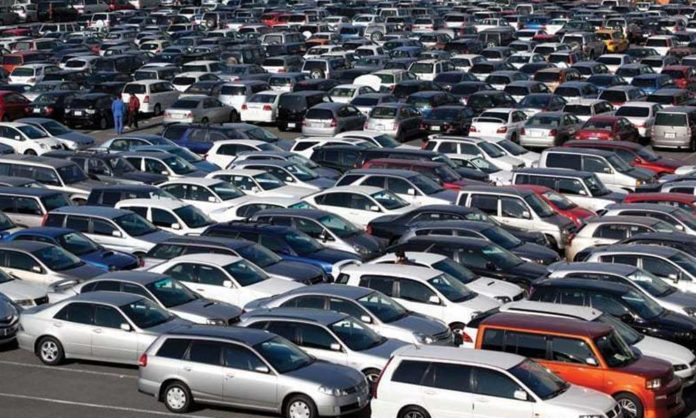The auto sales dropped 54 percent in August this year – from 20,931 units sold in August 2021 to just 9,600 units sold this year in August.
Pakistan’s auto sector is embracing a crisis at the moment. Production has dropped due to choked supply of imported parts amid imports curtailment by the government.
The sales are also seeing month-on-month drop of 17 percent from 11,591 units sold in July. The sales also dropped in July by 52 percent year-on-year and 56 percent month on month.
Experts say auto sales will remain under stress throughout fiscal year 2023. According to JS Research, the auto sales in fiscal year 2023 will remain 25 percent lower than what it was in 2022.
Another auto sector expert Arsalan Hanif thinks the sales may drop between 30 percent and 40 percent during fiscal year 2023.
“Amid escalating car prices and expensive auto financing, demand for cars struggles to remain afloat,” writes auto sector analyst, Wasil Zaman, in his report. “Administrative controls on imports have also impacted the supply side that has led to plant closures.”
Honda has said that it was expecting 3-4 non-production days for their plant in September. Toyota has so far announced two 15-day plant closures – first half of August and second in the ongoing of September. Suzuki has announced the shutdown of their plant since mid of August which still continues.
Zaman says the market was expecting a bigger dent on September’s auto sales due to these closures. “We anticipate a drop of more than 25 percent for the full fiscal year 2023,” he added.
Impact of floods is likely to take a heavy toll on Toyota sales as a major chunk of the company’s sales come from rural areas.
However, Zaman says all these may not erode profitability of the sector much because of recent aggressive price hikes.
Floods to take a heavy toll on auto sector
Arsalan Hanif says the auto sector performance is directly linked to the economic performance of the country. If a country’s economy performs, it means people, on an aggregate basis, have earned more than previous year therefore they are expected to spend more.
“The impact of floods will also haunt Pakistan’s economy too and it may restrict economic growth. Since the economy is expected to struggle, so would the auto sector,” he added.
Experts have also pointed out that floods in many parts of the country especially in rural areas have wreaked havoc on crops too. Pakistan has been forced to spend its limited foreign exchange reserves on import of essential food items to control skyrocketing prices.
This will force the government to keep imports of other items such as car parts called CKDs restricted which the industry was expecting to alleviate post September.
Arsalan added that the high policy rate has also made auto financing unviable for many therefore sales through auto financing is also expected to remain low.
The multifaceted issues with the auto industry as well as the struggling Pakistan economy is expected to remain for at least one year.
Therefore, the auto industry may perhaps be embracing its worst year since 2020, when the coronavirus pandemic emerged and the auto sector remained one of the worst hit sectors across the globe.




































